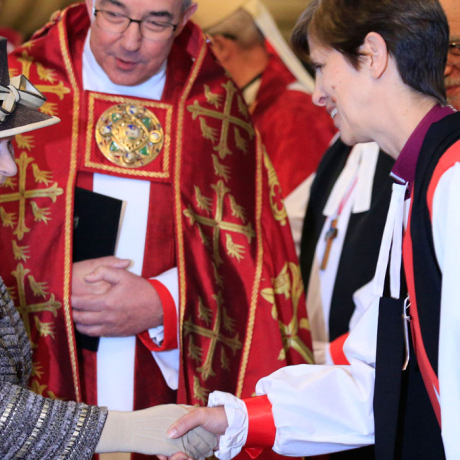Christmas Broadcast 2014
Published
For every poppy a life; and a reminder of the grief of loved ones left behind.
In the ruins of the old Coventry Cathedral is a sculpture of a man and a woman reaching out to embrace each other. The sculptor was inspired by the story of a woman who crossed Europe on foot after the war to find her husband. Casts of the same sculpture can be found in Belfast and Berlin, and it is simply called Reconciliation.
Reconciliation is the peaceful end to conflict, and we were reminded of this in August when countries on both sides of the First World War came together to remember in peace. The ceramic poppies at the Tower of London drew millions, and the only possible reaction to seeing them and walking among them was silence. For every poppy a life; and a reminder of the grief of loved ones left behind.
No-one who fought in that war is still alive, but we remember their sacrifice and indeed the sacrifice of all those in the armed forces who serve and protect us today.
In 1914, many people thought the war would be over by Christmas, but sadly by then the trenches were dug and the future shape of the war in Europe was set. But, as we know, something remarkable did happen that Christmas, exactly a hundred years ago today. Without any instruction or command, the shooting stopped and German and British soldiers met in No Man’s Land. Photographs were taken and gifts exchanged. It was a Christmas truce.
Truces are not a new idea. In the ancient world a truce was declared for the duration of the Olympic Games and wars and battles were put on hold. Sport has a wonderful way of bringing together people and nations, as we saw this year in Glasgow when over seventy countries took part in the Commonwealth Games. It is no accident that they are known as the Friendly Games. As well as promoting dialogue between nations, the Commonwealth Games pioneered the inclusion of para-sports within each day’s events. As with the Invictus Games that followed, the courage, determination and talent of the athletes captured our imagination as well as breaking down divisions.
The benefits of reconciliation were clear to see when I visited Belfast in June. While my tour of the set of Game of Thrones may have gained most attention, my visit to the Crumlin Road Gaol will remain vividly in my mind. What was once a prison during the troubles is now a place of hope and fresh purpose; a reminder of what is possible when people reach out to one another, rather like the couple in the sculpture.
Of course, reconciliation takes different forms. In Scotland after the referendum many felt great disappointment, while others felt great relief; and bridging these differences will take time. Bringing reconciliation to war or emergency zones is an even harder task, and I have been deeply touched this year by the selflessness of aid workers and medical volunteers who have gone abroad to help victims of conflict or of diseases like Ebola, often at great personal risk.
For me, the life of Jesus Christ, the Prince of Peace, whose birth we celebrate today, is an inspiration and an anchor in my life. A role-model of reconciliation and forgiveness, he stretched out his hands in love, acceptance and healing. Christ’s example has taught me to seek to respect and value all people of whatever faith or none.
Sometimes it seems that reconciliation stands little chance in the face of war and discord. But, as the Christmas truce a century ago reminds us, peace and goodwill have lasting power in the hearts of men and women.
On that chilly Christmas Eve in 1914 many of the German forces sang “Silent Night”, its haunting melody inching across the line. That carol is still much-loved today, a legacy of the Christmas truce, and a reminder to us all that even in the unlikeliest of places hope can still be found.
A very happy Christmas to you all.
Related content
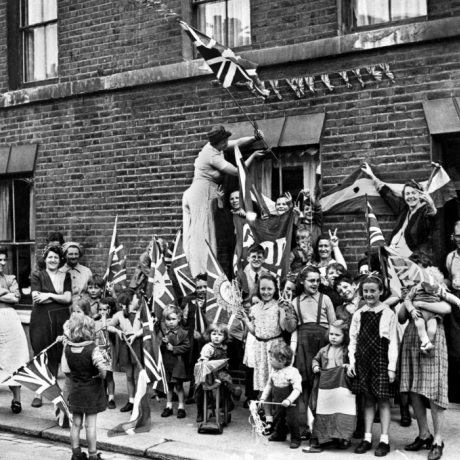
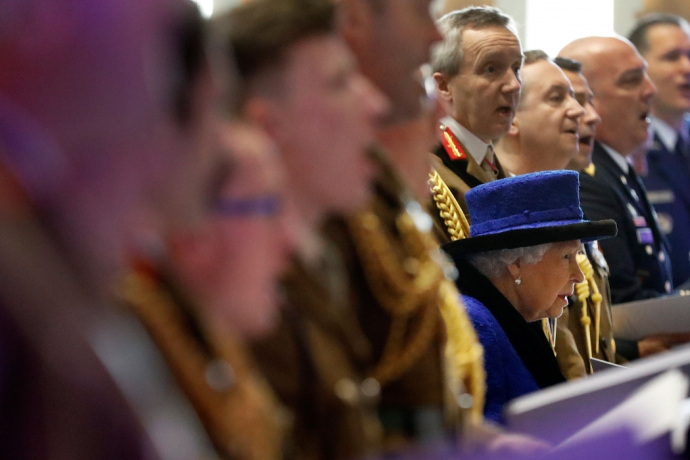
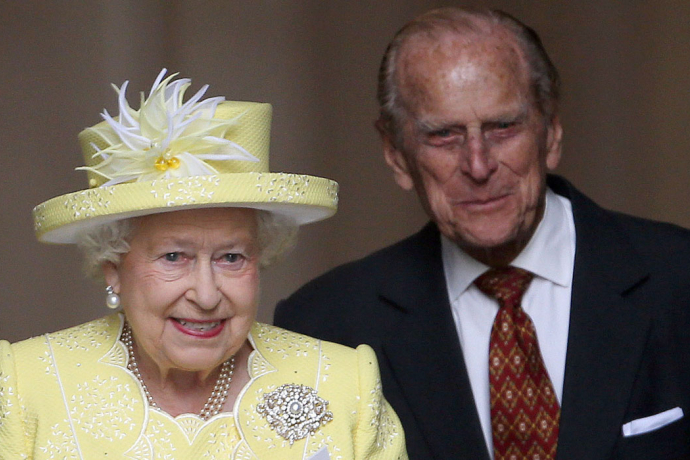
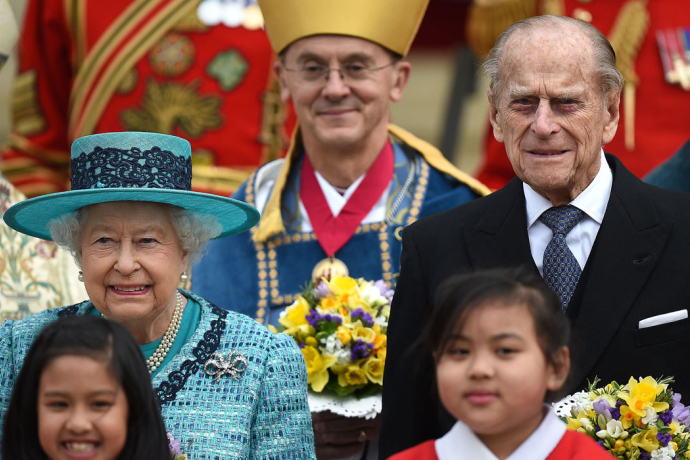
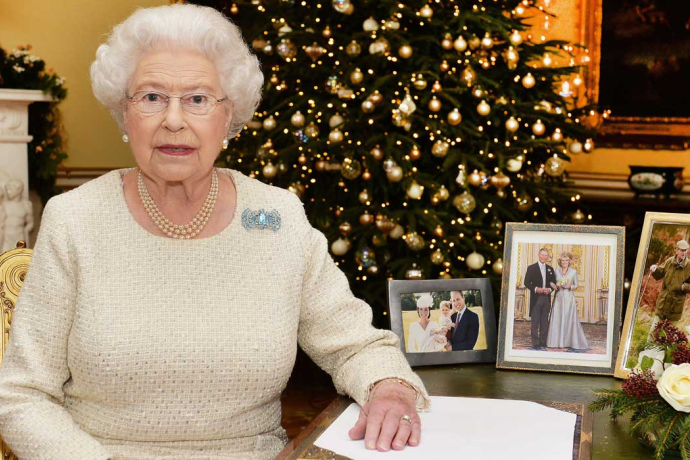
Christmas Broadcast 2015
I have been warned I may have Happy Birthday sung to me more than once or twice.
A speech by The Queen at the Inauguration of the General Synod, 2015
St. Paul reminds us that all Christians, as ambassadors for Christ, are entrusted with the ministry of reconciliation.
Christmas Broadcast 2011
It is through this lens of history that we should view the conflicts of today, and so give us hope for tomorrow.
Christmas Broadcast 2012
At Christmas I am always struck by how the spirit of togetherness lies also at the heart of the Christmas story.
Christmas Broadcast 1997
Being united - that is, feeling a unity of purpose - is the glue that bonds together the members of a family, a country, a Commonwealth.
Christmas Broadcast 2002
All great religions have such times of renewal, moments to take stock before moving on to face the challenges which lie ahead.
Christmas Broadcast 1977
My hope this Christmas is that the Christian spirit of reconciliation may burn as strongly in our hearts during the coming year.
Christmas Broadcast 1972
In the United Kingdom we have our own particular sorrows in Northern Ireland and I want to send a special message of sympathy to all those men, women and children who have...
Christmas Broadcast 1975
Then Christmas comes, and once again we are reminded that people matter, and it is our relationship with one another that is most important.
Royal Maundy Service
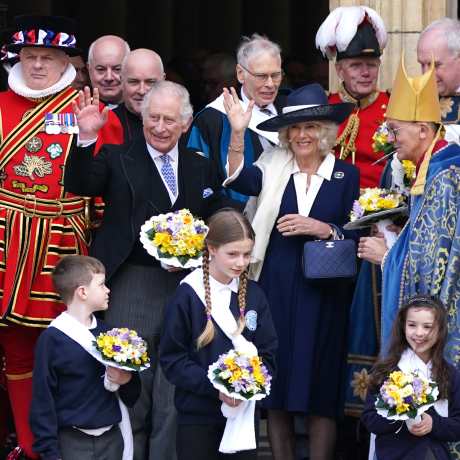
Christmas Broadcast 2013
We are forever grateful to all those who put themselves at risk to keep us safe.
A speech by The Queen at Lambeth Palace, 2012
The Church has a duty to protect the free practice of all faiths in this country
Outfits for The Queen, The Duchess of Cornwall and The Prince of Wales
Her Majesty The Queen gives formal consent to the marriage of Prince William and Catherine Middleton
Christmas Broadcast 2010
Right around the world, people gather to compete under standard rules and, in most cases, in a spirit of friendly rivalry.
A speech by The Queen at the General Synod Inauguration, 2010
At the heart of our faith stand not a preoccupation with our own welfare and comfort but the concepts of service and of sacrifice.
A speech by The Queen during the Papal Visit, 2010
Your Holiness, your presence here today reminds us of our common Christian heritage, and of the Christian contribution to the encouragement of world peace.
A speech by The Queen at the Sydney Opera House
It is my duty to seek to remain true to the interests of Australia and all Australians as we enter the twenty-first century.
Christmas Broadcast 2009
I am confident that this diverse Commonwealth of nations can strengthen the common bond that transcends politics, religion, race and economic circumstances.
Christmas Broadcast 2008
When life seems hard, the courageous do not lie down and accept defeat; instead, they are all the more determined to struggle for a better future.
A speech by The Queen at the Royal Naval College, Dartmouth
My grandfather, father, husband and two sons have all undergone training here, and I have had many visits over the years.
Christmas Broadcast 2007
The Christmas story also draws attention to all those people who are on the edge of society
Christmas Broadcast 2006
The birth of a baby brings great happiness - but then the business of growing up begins.
A speech by The Queen at Mansion House for Her Majesty's 80th Birthday
As Groucho Marx once said "Anyone can get old - all you have to do is to live long enough". And there are in my view many other anniversaries this year which are more...
Christmas Broadcast 2005
These natural and human tragedies provided the headline news; they also provoked a quite remarkable humanitarian response.
Opening ceremony, eighth General Synod of the Church of England, 15 Nov 2005
When limitless amounts of information, much of it ephemeral, are instantly accessible on demand, there is a renewed hunger for that which endures and gives meaning.
Norway State Banquet, 25 October 2005
I remember the bonfires along the coastline as we arrived and the enthusiastic welcome we received as guests of your grandfather, King Haakon.
Christmas Broadcast 2004
Everyone is our neighbour, no matter what race, creed or colour.
Statement by The Queen following death of HRH Princess Alice
Arrangements for The Queen's Christmas Broadcast to the Commonwealth
Fairmont Hotel in Vancouver, Canada, 7 October 2002
Je chéris ma place dans la vie du Canada et mon lien avec tous les Canadiens et Canadiennes.

